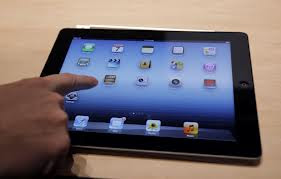SAN FRANCISCO, United States — Apple on Monday is expected to show off pricy mixed-reality headgear at its annual Worldwide Developers Conference, challenging Facebook-owner Meta in a market that has yet to sizzle.
The iPhone maker has remained mum on reports that it is poised to unveil a headset for augmented or virtual reality experiences at its annual jamboree for developers and app designers.
The release would be the most significant product launch by the iconic iPhone maker since it unveiled the Apple Watch in 2015.
It could also invite more tensions between Apple CEO Tim Cook and Meta's Mark Zuckerberg who have feuded over the handling of their sprawling tech empires, especially over data issues and China ties.
Expectations are high that Apple will use the WWDC stage to spotlight a "Reality Pro" headset priced around $3,000, along with custom-made software for the gear, Wedbush analyst Dan Ives said in a note to investors.
"We believe Apple's Reality Pro will come with many apps and use cases," Ives said.
Cook is also expected to talk about the company's strategy when it comes to artificial intelligence, which has been in the spotlight since startup OpenAI released ChatGPT late last year.
The headset has been in development at Cupertino-based Apple for years, and will focus on gaming, streaming video and conferencing, as well as health and fitness, according to Ives.
It is also expected to synch closely with other Apple devices, following the company's strategy of using premium hardware to lock customers into other products and services.
"From all reports, Apple hoped to release a product that felt more like designer glasses than a gaming headset, but it's releasing something much bulkier," said Insider Intelligence principal analyst Yory Wurmser.
"It wants to get its device into the hands of early adopters and developers, who will start to build a (mixed reality) ecosystem around Apple software."
A report by Bloomberg described the headset as a high-tech pair of ski googles that would project a wearer's eyes and facial expressions on an external screen.
Just days before Apple's event, Meta ramped up its line of Quest virtual reality headgear.
A new-generation Quest 3 with improved performance and slimmed design will be available later this year at a starting price of $500, Zuckerberg said.
The Facebook founder described the coming model as Meta's "most powerful headset yet" and promised it would provide the best wireless way to experience virtual reality.
Metaverse bound
Zuckerberg has been adamant that Meta remains devoted to building for a future in which internet life plays out in virtual worlds referred to as the metaverse.
"Meta has been the dominant VR manufacturer over the past several years, thanks to its cheap Quest devices," Wurmser said.
But Meta's experience with the metaverse has been humbling despite it being a leader in the emergent sector and many questioned whether Apple would in the end jump in.
And less than two years after changing its name to Meta to reflect a metaverse priority, the Facebook giant has fired tens of thousands of staff and promised to get back to its social media basics.
Meta's false start follows the failure of Google Glass, the search engine giant's decade long effort that was mothballed for good in March.
Agence France-Presse

























